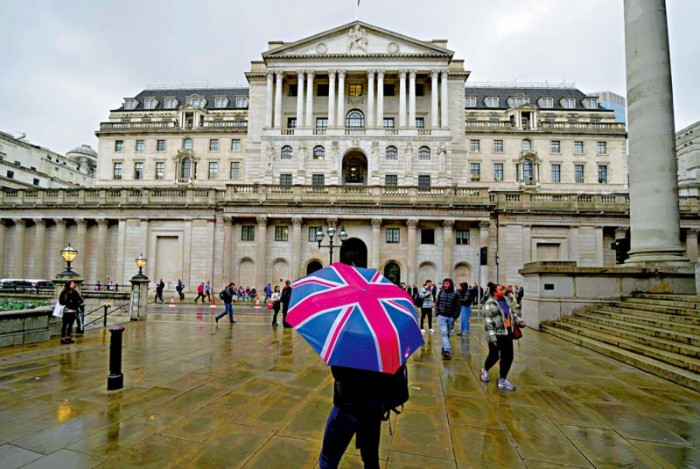
In today's rapidly changing global economic environment, any slight fluctuation in data can trigger a chain reaction, affecting the direction of national economies and market expectations. Recently, a key economic indicator of the United Kingdom - wage growth rate, once again focused the attention of global investors on the British Isles. The data showed that wages in the UK increased by 5.2%, which was well above the market consensus of 4.6%. Not only does this growth have a complex set of knock-on effects for the UK economy, it could also have far-reaching volatility in global financial markets.
First, the remarkable rise in wage growth has undoubtedly been a boon to British workers and a boost to living standards. However, from a macroeconomic perspective, this growth trend is not entirely optimistic. There is a close link between wage growth and inflation. When wages generally rise, the production costs of enterprises will also increase. In order to maintain profit levels, companies often choose to raise the price of their products, thereby passing the cost on to consumers. This knock-on effect is likely to lead to a rise in inflation, posing a threat to the stable growth of the UK economy.
In fact, although the UK's CPI (consumer price index) has fallen to 1.7% in September, below the Bank of England's 2% target, inflationary pressures remain. Services inflation, in particular, has remained high at more than 5 per cent. As an important part of the UK economy, the high level of inflation in the service sector will undoubtedly exacerbate inflationary pressures in the overall economy. In addition, rising wage growth can also trigger a vicious circle of "wage-price spirals", in which wage growth drives up prices, and price rises further stimulate wage growth, resulting in an inflation situation that is difficult to control.
As the monetary authority of the United Kingdom, the Bank of England has always been concerned about its policy making. Faced with a significant rise in wage growth, the Bank of England is likely to pause its pace of interest rate rises this week, possibly even until February. The logic behind this decision is not hard to understand. The inflationary pressure from wage growth makes the Bank of England need to be more cautious in setting monetary policy. If the rate hike continues, it could further depress economic growth and lead to negative consequences such as rising unemployment. The pause in interest rate increases can provide a certain breathing space for the British economy to avoid excessive tightening of monetary policy on the economy.
However, the Bank of England's decision also faces many challenges. On the one hand, a pause could undermine the central bank's inflation-fighting credibility, raising questions about its ability to control inflation. On the other hand, if inflationary pressures continue to rise, the central bank may eventually have to take more aggressive interest rate hikes to contain inflation, which will create greater uncertainty for the economy.
The euro fell 0.3 per cent against the pound, while sterling rose 0.25 per cent against the dollar. This exchange rate move not only reflects changes in market expectations about the UK's economic outlook, but could also have profound implications for international trade and investment. The appreciation of sterling will increase the price of British export goods in the international market and reduce its competitiveness. At the same time, the appreciation of the pound will make imported goods relatively cheaper, thus stimulating import demand growth. However, in the context of the current weak global economic recovery, the decline in export demand will undoubtedly pose new challenges to the UK economy.
In addition, rising wage growth in the UK could also have spillover effects on global financial markets. As an important part of global financial markets, fluctuations in the UK market are likely to trigger a ripple effect across global markets. Especially for those countries and regions closely linked to the UK economy, the rise in the rate of wage growth in the UK will have an important impact on their economic trends and market expectations.
On the stock market front, the FTSE remained at a lower high as equity traders were keeping a close eye on when the usual Santa rally would begin. However, against the backdrop of the current complex and volatile global economic situation, it is clear that the road to recovery of the stock market will not be smooth. In the U.S. market in particular, most of the gains in the index have come from a handful of stocks led by Alphabet and Tesla. This "minority of stocks led the rally" situation not only increased the volatility of the market, but also made investors more uncertain about the overall trend of the market.
While the market has priced in a rate cut, the Fed's policy direction remains uncertain. The release of the quarterly summary of economic forecasts will shed further light on the Fed's views and expectations for future economic movements. In particular, the expected rate cut in 2025 will become one of the focuses of the market. In the context of the current inflationary pressure still exists, will the Federal Reserve choose more aggressive interest rate cuts to stimulate economic growth? This issue is not only related to the future trend of the US economy, but also has an important impact on the global economic market.
In conclusion, the significant rise in the rate of wage growth in the UK undoubtedly brings new challenges and opportunities for the UK economy. From a critical point of view, this growth trend has improved people's living standards, but it may also lead to higher inflation, slower economic growth and other negative consequences. At the same time, the Bank of England's policy making also faces many challenges and uncertainties. At a time when global financial markets are increasingly interconnected, fluctuations in the UK economy will not only have profound consequences for the UK itself, but may also have spillover effects on global financial markets. Therefore, in the face of this complex and changing economic situation, we need to keep a clear head and keen insight, and respond to the challenges and opportunities in the future with a more stable and rational attitude.

Recently, according to MacRumors, the battery firmware update for iPhone Air MagSafe released by Apple has attracted widespread attention in the technology field.
Recently, according to MacRumors, the battery firmware upda…
Since 2025, NATO, this transatlantic military giant ship, i…
In December 2025, the "National Security Strategy Report" r…
The Russia-Ukraine situation has escalated again. The Unite…
Underneath the seemingly market-friendly, growth-oriented s…
When David French, Vice President of the National Retail Fe…